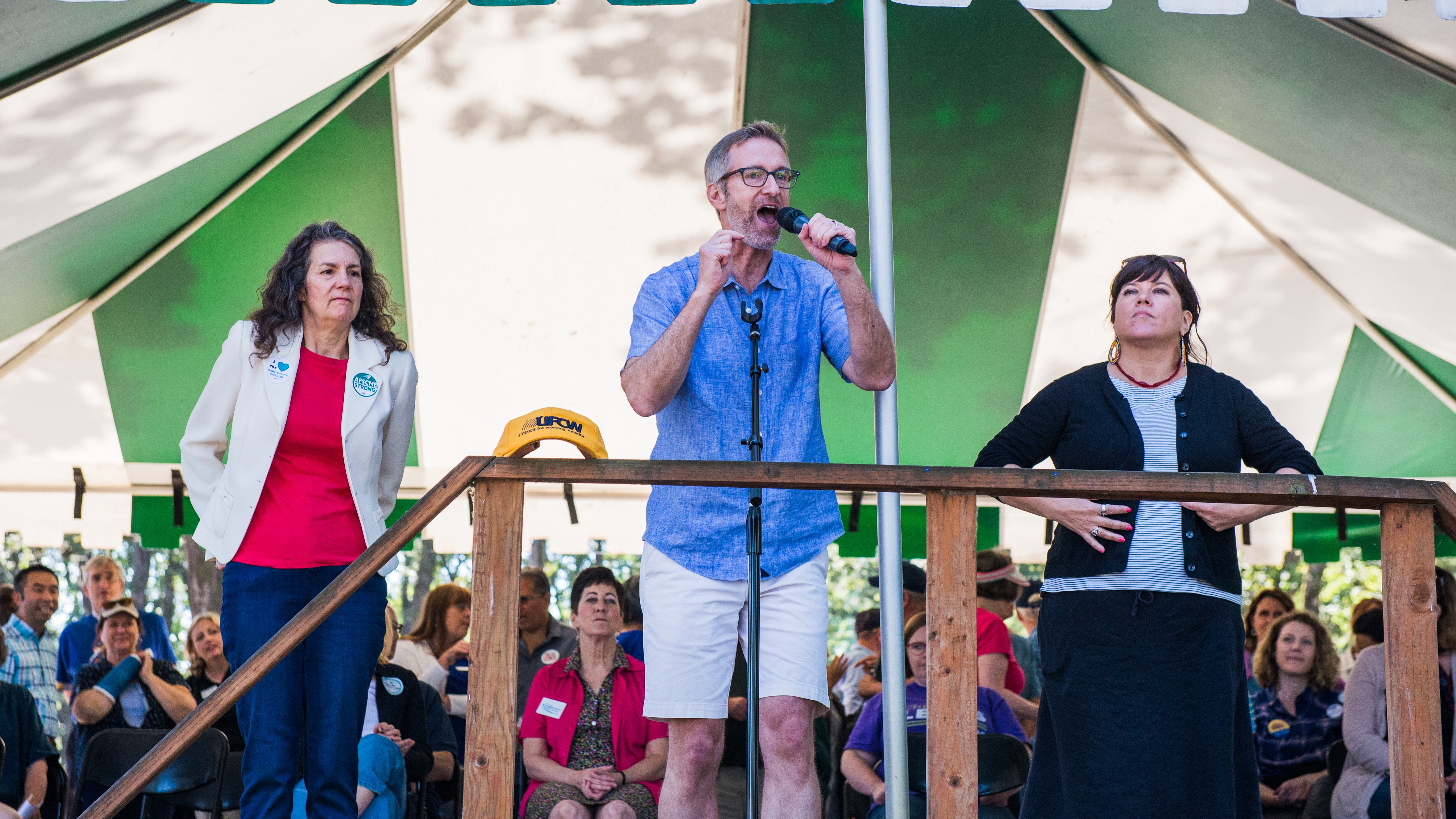Portland Mayor Ted Wheeler. He won't be up for re-election until 2020, but the final two years of his first term will be shaped by what happens this fall.
First, there's the City Council contest. Front-runner Jo Ann Hardesty is known as a verbal bomb-thrower who won't be shy at City Hall. She has been vocal in her criticism of the mayor's policing and housing policies. And with the support of Commissioners Chloe Eudaly (who endorsed her in the primary) and Amanda Fritz (who endorsed her last week), Hardesty will be in a group of three that could and probably will wrest control from the mayor on some issues. If she wins, for example, look for the city to pull out of the federal Joint Terrorism Task Force, long a focus of civil rights advocates.
"White men have dominated the City Council for more than 100 years," says Eudaly chief of staff Marshall Runkel. "It will be interesting to see how the first majority female council will operate. There's some evidence that more female representation leads to more spending on social welfare, but it is impossible to predict how that dynamic will play out in Portland."
Wheeler's office says he'll be fine.
"The mayor works well with everyone," says chief of staff Michael Cox. "On the environment, economic development, good governance, you name it, our track record is collaboration and positive results."
But Wheeler has a tricky road ahead. Items on the ballot are placing increased political pressure on him—both from the right and the left.
In the governor's race, Knute Buehler is highlighting the intractable problem of homelessness, appearing in TV ads that make Portland's streets look post-apocalyptic, which doesn't reflect well on the mayor.
Wheeler and his ability to address that problem will depend in part on two measures on the ballot. Measure 26-199, the Metro housing bond, would provide $253 million to subsidize apartment construction in Multnomah County. And the statewide Measure 102 would allow the city to pair federal housing dollars with bond projects—which would let City Hall build hundreds more units with the taxpayer dollars it collects.
Meanwhile, another measure, 26-201, would hike corporate taxes on big businesses that operate in Portland; funds would pay for clean energy projects. That would give City Hall millions of dollars in new tax revenue—but it would also inflame the frustration of businesses already angry about homelessness. The mayor tried to cut a deal to keep it off the ballot—but if it passes, he'll still have to deal with the rancor from businesses.
And if Wheeler decides he wants four more years of this? His fundraising for re-election could be curtailed by the campaign finance caps in Measure 26-200. They would limit political contributions to $500.

Why Is an Anti-Abortion Measure on the Ballot in America's Most Pro-Choice State?
Why is Phil Knight backing both Colin Kaepernick and Knute Buehler?
Why was it so easy for Republicans to crowd the ballot with measures?
Supporters of Measure 104 say it's about fiscal discipline, but what's the real issue?
Measure 103 will ban grocery taxes. What else will it do?
Why does housing in the ''Burbs depend on Portland voters?
Don't utilities already do the things the Portland Clean Energy Measure proposes to do?
